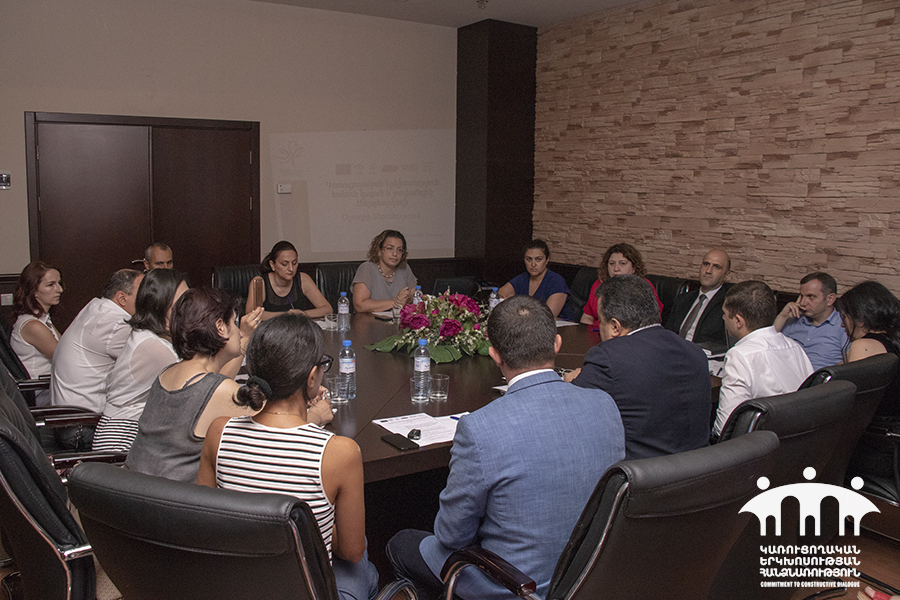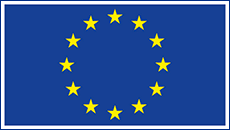
A workshop on rules of procedures and regulatory measures for the development of energy efficiency and renewable energy in public procurement was held on 7 August. The workshop was aimed at discussing sector-related issues and possible solutions, discussing the need for reform and implementation of public policies accordingly.
The workshop was organised by the “CSOs for Sustainable and Transparent Energy Development” (EU4STED) Project with funds provided in the scope of the EU-funded “Commitment Constructive Dialogue” Project.
The “CSOs for Sustainable and Transparent Energy Development” (EU 4STED) project is carried out by the Coalition of four NGOs, including “Energy Saving Fund, “Assistance for Reform”, “Women in Energy and Climate”, ” Center for Human Capital Development NGO Sector”.
Mr. Emin Yeritsyan, Coordinator on Local Self Government Issues of the “Commitment Constructive Dialogue” Project, President of the Union of Communities of Armenia highlighted the initiative, noting that the objective of the “Commitment Constructive Dialogue” Project was to create a coalition of CSOs that will implement through a constructive dialogue with the government and sectoral structures relevant reforms in the field of energy.
Mr. Artashes Kirakosyan, Head of the Staff of the Ministry of Energy and Natural Resources mentioned that they have already had meetings with the representatives of the coalition “CSOs for Sustainable and Transparent Energy Development” (EU 4STED) project and discussed issues related to the development of effective mechanisms.
Ms Astghine Pasoyan, Director of the Energy Saving Fund and Ms Tamara Babayan, Program Coordinator for Sustainable Energy, presented to participants the objectives, main components and outcomes of “CSOs for Sustainable and Transparent Energy Development” (EU 4STED) project, elaboration of policy for energy efficiency and renewable energy development in community procurement and the need to adopt relevant legal acts, regulating the current electricity market in the context of the opportunities for the development of renewable energy in the community economy. The presentation was followed by active discussions of the issues.
Representatives of state agencies, local self-government bodies, public services structures and civil society attended the workshop.
A number of observations and recommendations were made during the workshop. The latter will be collected, processed and, if necessary, will be included in the planned public policy.
As a result of the workshop a working group was set up to organise and implement further processes as efficiently as possible.
The “Commitment to Constructive Dialogue” project is implemented with the financial support of the European Union by a Consortium of civil society organisations, which are the Armenian Lawyers’ Association (lead organisation), Agora Central Europe (NGO based in the Czech Republic), the Armenian Centre for Democratic Education-CIVITAS, the International Centre for Human Development, the SME Cooperation Association and the Union of Communities of Armenia.
The project aims to enhance the influence of civil society organisations (CSOs) and CSO coalitions/networks on public policies in Armenia. This will allow organisations that are already working in sectoral coalitions to access additional resources, new groups of civil society experts to come together and encourage place their causes on the local and national policy agenda, to identify common concerns and priorities and approach government bodies with constructive and strategic policy engagement initiatives.
The project will provide sub-grants to CSOs and CSO coalitions for developing public policies and bringing significant changes in the 9 target sectors selected within the project, including those of justice, human rights, public finance management, business, education, social sphere: social inclusion of children with disabilities, agriculture, economy, and energy.








































